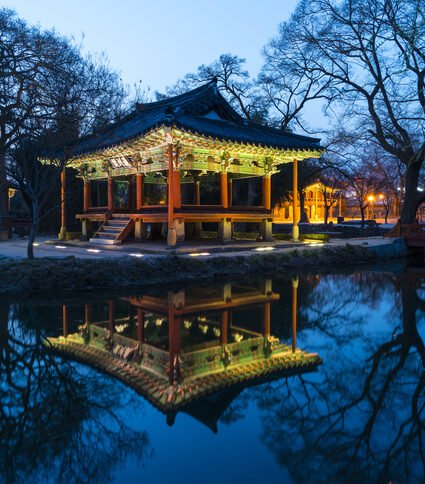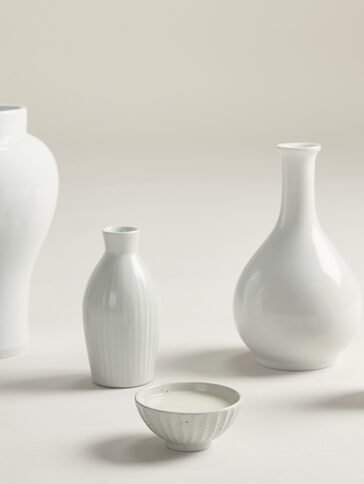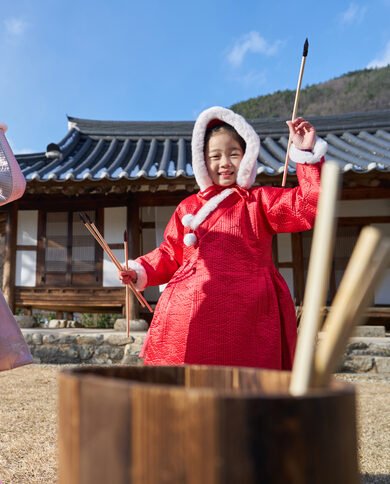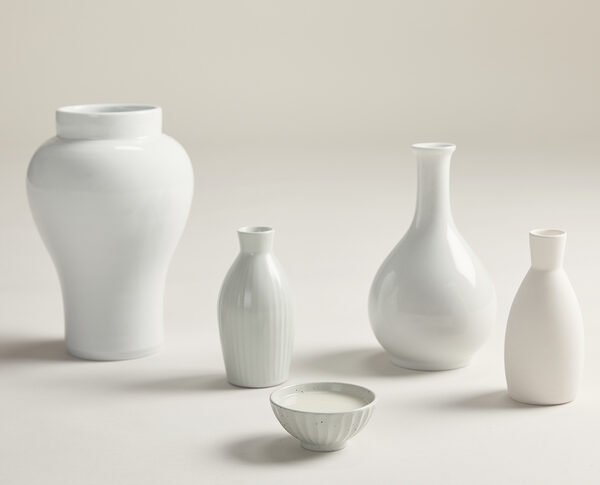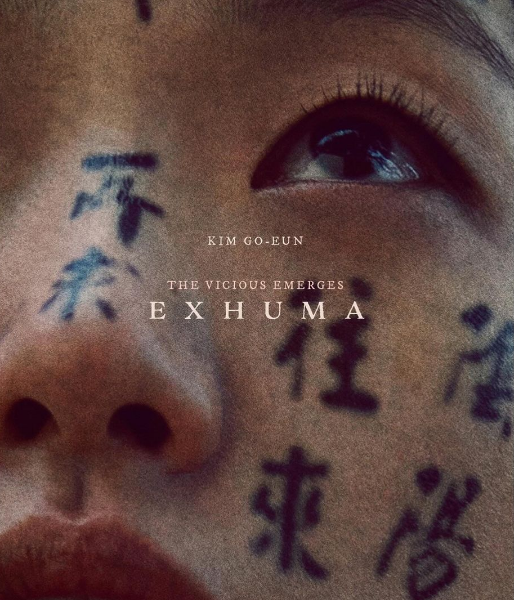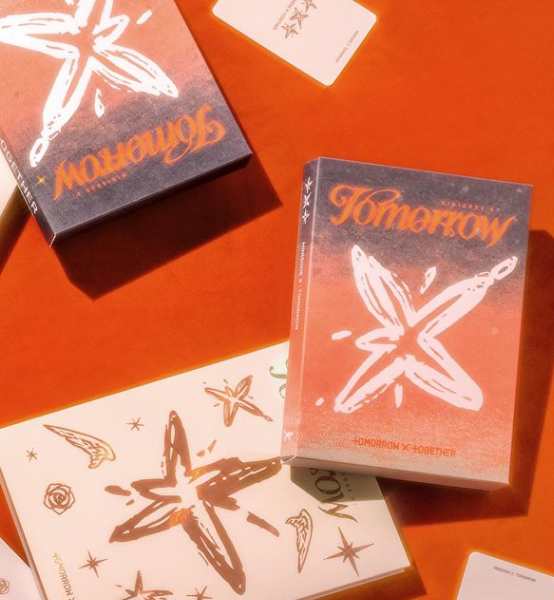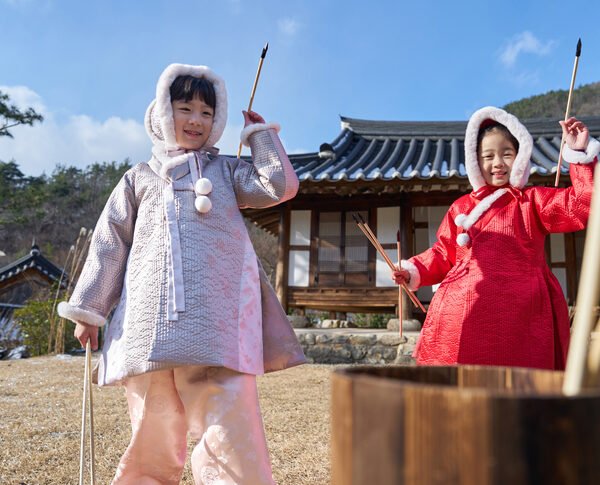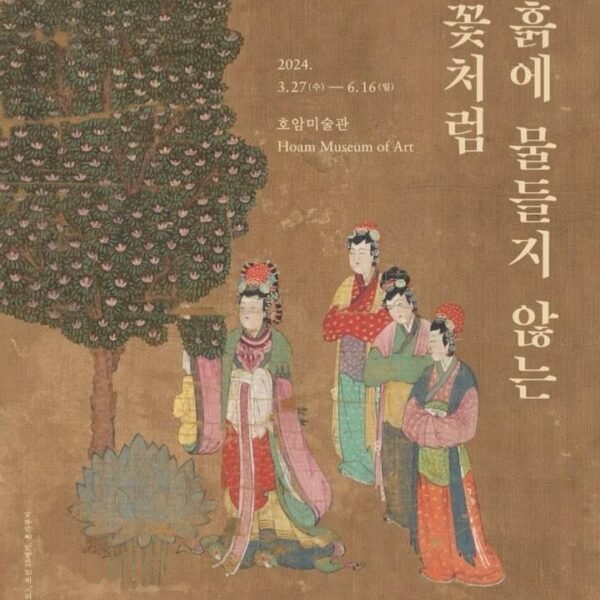Cheong Wa Dae, also known as the Presidential Residence of South Korea, has recently become a national tourist destination after being returned to the people by the 20th President, Yoon Suk-yeol. Previously, visiting this prestigious residence required a complicated application process, but now anyone can explore the various corners of Cheong Wa Dae by making an online reservation. From the main building, where the president’s office and reception rooms are located, to the Presidential Residence, where the president and his family reside, visitors can get a closer look at the previously distant world of the president. Additionally, there are other notable areas to explore in the vicinity, making a visit to Cheong Wa Dae an ideal one-day outing. Step into the rich history and culture of South Korea at this iconic landmark.
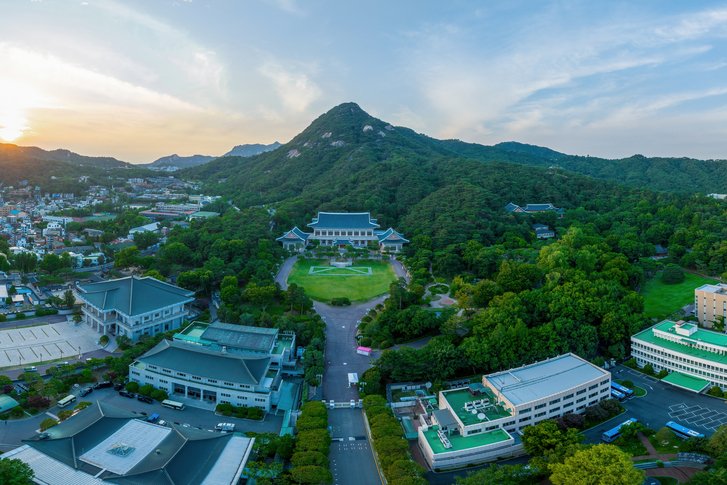
Cheong Wa Dae: The Presidential Residence of South Korea
Welcome to Cheong Wa Dae, the official residence of the President of South Korea. Located in Seoul, Cheong Wa Dae serves as both the political and symbolic center of the nation. In this article, we will explore the background of Cheong Wa Dae, the process of visiting, as well as the private spaces within the presidential residence.
Background of Cheong Wa Dae
Cheong Wa Dae, which translates to “The Blue House,” has a rich history dating back to the Joseon Dynasty. Originally built as a royal villa, it became the presidential residence of South Korea in 1968. The architecture of Cheong Wa Dae is a beautiful blend of traditional Korean style and modern design, representing the nation’s historical and cultural heritage.
Relocation of the 20th President
In recent years, Cheong Wa Dae underwent a significant relocation. As the 20th President, Yoon Suk-yeol, moved to the Yongsan office, Cheong Wa Dae was returned to the people. This shift allowed for a more accessible and inclusive approach to visiting the presidential residence. Now, anyone can explore all corners of Cheong Wa Dae with a simple online reservation or on-site registration.
Visiting Cheong Wa Dae
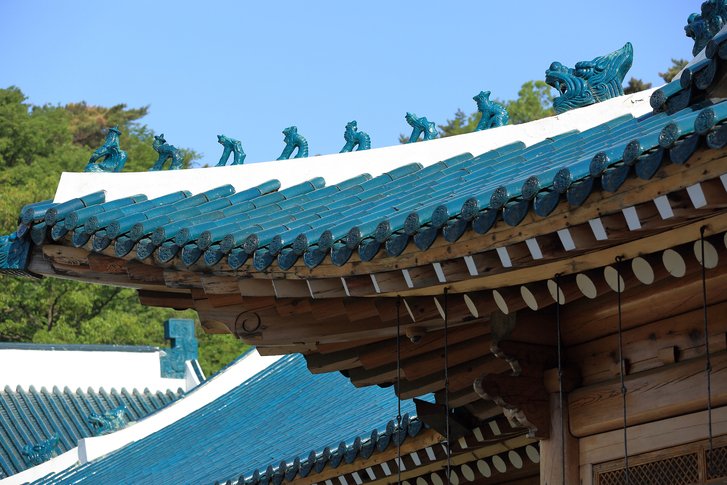
Online Reservation Process
To visit Cheong Wa Dae, you can make an online reservation through their official website. The reservation process is straightforward and convenient, especially for foreigners with an Alien Registration Card and Korean phone number. By following the designated steps on the website, you can secure your visit to this iconic location.
On-site Registration
In addition to online reservations, on-site registration is available for those who prefer a more spontaneous visit. However, please note that there is a limit of 2,000 visitors per day for on-site registration, so it’s recommended to arrive early to secure your spot.
Main Building and Presidential Residence
The main building of Cheong Wa Dae is the heart of the presidential residence. Nestled under the majestic Bugaksan Mountain, the main building stands as a symbol of the nation’s leadership. You can explore the various rooms and spaces within the main building, including the office of the president, the office of the first lady, and the reception room for foreign guests. It’s a unique opportunity to get a closer glimpse of the president’s everyday working environment.
Office of the First Lady
The office of the first lady is another noteworthy space within Cheong Wa Dae. Here, you will find pictures of former first ladies, creating a sense of continuity and heritage. Exploring this office allows visitors to gain a deeper understanding of the role of the first lady in South Korean politics and society.
Reception Room for Foreign Guests
As part of the diplomatic function of Cheong Wa Dae, there is a designated reception room for foreign guests. This room has hosted numerous international leaders and dignitaries throughout history. By visiting this space, you can experience the grandeur and elegance associated with state visits and diplomacy.
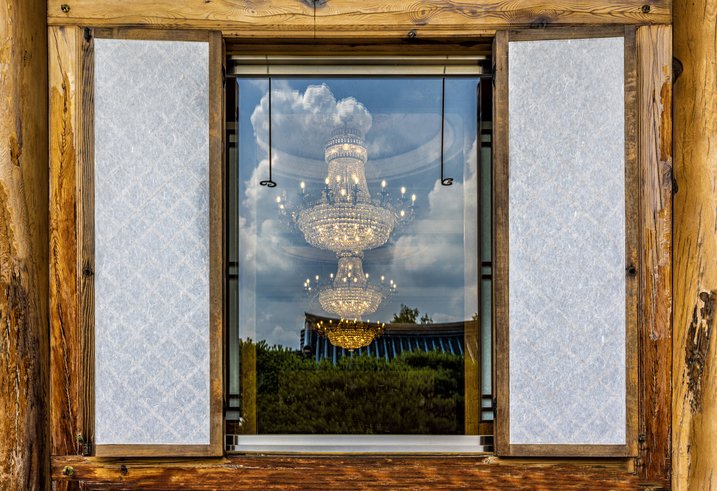
Private Spaces in the Presidential Residence
Bedroom
The presidential residence is not just a place of work; it also serves as a home for the president and their family. Within the residence, there is a private bedroom where the president can rest and recharge. While visitors may not have access to the bedroom itself, knowing that it exists adds a personal touch to the grandeur of Cheong Wa Dae.
Dressing Room
Next to the bedroom, you will find a dressing room where the president prepares for official engagements. This space represents a blend of function and style, reflecting the importance of presentation in the world of politics.
Dining Room
The presidential dining room is a place where important meetings and gatherings take place. With its elegant decor and exquisite cuisine, it provides a setting for both formal and informal discussions. While visitors may not have the opportunity to dine in this room, it offers a glimpse into the presidential lifestyle.
Beauty Salon
Within the presidential residence, there is also a beauty salon where the first lady can take care of her appearance. This space highlights the importance of maintaining a polished and professional image in the political sphere.
Other Places to Visit
Sangchunjae
Sangchunjae is a traditional hanok located within the grounds of Cheong Wa Dae. This structure served as a place to welcome guests from both home and abroad. A visit to Sangchunjae provides a glimpse into the traditional architecture and hospitality of South Korea.
Yeongbingwan
Yeongbingwan is a building where official events and meetings were historically held. Its grandeur and scale reflect the importance of these gatherings in the political landscape of South Korea.
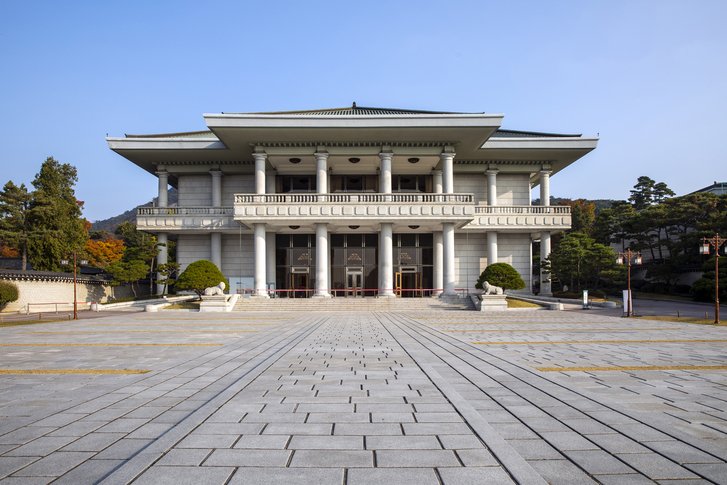
Nokjiwon
Nokjiwon is a beautiful and expansive garden within the grounds of Cheong Wa Dae. This green oasis provides a tranquil escape from the bustling city, allowing visitors to appreciate the harmony between nature and architecture.
Yeomingwan
Yeomingwan serves as a secretariat office within Cheong Wa Dae. While it may not be open to visitors, its presence highlights the administrative functions essential to the smooth operation of the presidential residence.
Chungchugwan Press Center
The Chungchugwan Press Center is an important space within Cheong Wa Dae. It serves as a hub for media activities and press conferences, allowing journalists to cover the latest happenings at the heart of South Korean politics.
One-day Outing Course
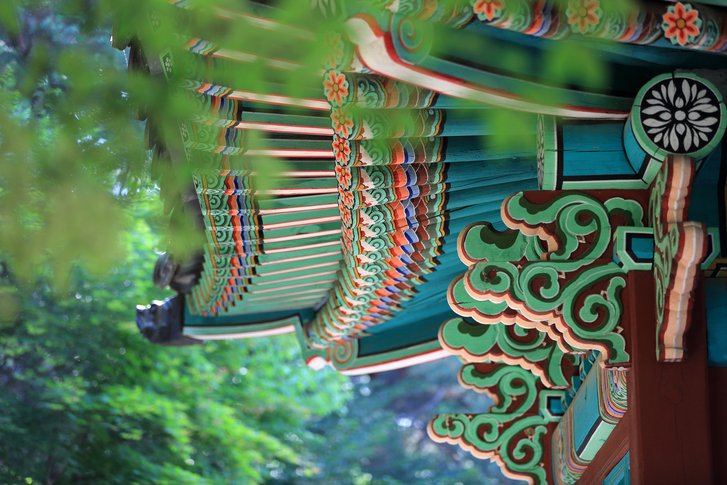
Surrounding Areas of Cheong Wa Dae
Exploring the surrounding areas of Cheong Wa Dae can make for a perfect one-day outing. These nearby neighborhoods offer unique cultural experiences and historical sites that complement a visit to the presidential residence.
Bukchon
Bukchon, located near Cheong Wa Dae, is a neighborhood where high-ranking officials resided during the Joseon Dynasty. It is renowned for its well-preserved traditional hanok houses that give a glimpse into the architectural history of South Korea.
Seochon
Seochon is a neighborhood known for preserving the culture of the ordinary people. Here, you can find traditional markets, local shops, and a vibrant atmosphere that showcases the everyday life of South Koreans.
Samcheong-dong and Buam-dong
Samcheong-dong and Buam-dong are neighborhoods that embody traditional Korean culture. These areas are famous for their picturesque alleyways, traditional tea houses, and art galleries, making them a haven for art and culture enthusiasts.
Address, Operating Hours, and Admission
Cheong Wa Dae is located at 1 Cheongwadae-ro, Jongno-gu, Seoul. The operating hours are from March to November, 09:00-18:00, and from December to February, 09:00-17:30. Cheong Wa Dae is closed on Tuesdays. Admission to Cheong Wa Dae is free, allowing everyone the opportunity to experience the history and grandeur of the presidential residence.
Cheongwadae Sarangchae: The History of Korea in One Place
Located near Cheong Wa Dae, Cheongwadae Sarangchae offers visitors the opportunity to immerse themselves in the history and culture of South Korea. In this section, we will explore the location, description, and exhibits of Cheongwadae Sarangchae.
Location and Description of Cheongwadae Sarangchae
Cheongwadae Sarangchae is situated in Hyoja-dong, Jongno-gu, Seoul. Unlike the traditional architecture of Cheong Wa Dae, Cheongwadae Sarangchae features a modern and sophisticated building, providing a contrasting yet complementary experience.
History and Reopening as a Public Facility
Cheongwadae Sarangchae has a fascinating history. Initially, it served as the official residence of the president’s chief of staff. However, after the January 21 Incident in 1968, public access to the facility was prohibited. In 1996, it was repurposed as Hyoja-dong Sarangbang, and in January 2010, it was reopened as Cheongwadae Sarangchae. This transformation allowed the facility to be accessible to the public, providing a comprehensive view of Korean history and culture.
Exhibits and Features of Cheongwadae Sarangchae
History of Cheong Wa Dae
Cheongwadae Sarangchae showcases the rich history of Cheong Wa Dae, from its beginnings as a royal villa to its current status as the presidential residence. Through multimedia exhibits, visitors can gain a deeper understanding of the historical significance and evolution of Cheong Wa Dae.
Achievements of the President
Another highlight of Cheongwadae Sarangchae is the exhibition of the achievements of the president. This section presents the dynamic leadership and accomplishments of different presidents, giving visitors insights into their contributions to the nation’s development.
International Gifts
A fascinating aspect of Cheongwadae Sarangchae is the display of gifts from the leaders of various countries to the South Korean presidents. These gifts reflect the diplomatic relationships and cultural exchanges between South Korea and the international community.
Korea Tourism Exhibition Hall
The Korea Tourism Exhibition Hall within Cheongwadae Sarangchae provides visitors with a glimpse into the diverse attractions and natural beauty of South Korea. Through photos and interactive displays, you can explore different regions of the country and plan your own Korean adventure.
Cheong Wa Dae Newspaper Experience Zone
At the Cheong Wa Dae Newspaper Experience Zone, visitors can participate in a unique activity. Here, you can print your face onto a mock presidential election newspaper, creating a personalized memento of your visit.
Introduction to UNESCO World Heritage
Cheongwadae Sarangchae also dedicates a section to introducing the UNESCO World Heritage sites of South Korea. Through informative displays and multimedia presentations, visitors can learn about the cultural and historical significance of these remarkable sites.
Address, Operating Hours, and Admission
Cheongwadae Sarangchae is located at 45 Hyoja-ro 13-gil, Jongno-gu, Seoul. The operating hours are from 09:00-18:00, with the last admission at 17:30. Please note that Cheongwadae Sarangchae is closed on Tuesdays. Admission to Cheongwadae Sarangchae is free, allowing visitors to delve into the history of Korea without any financial burden.
In conclusion, Cheong Wa Dae and Cheongwadae Sarangchae are must-visit destinations for anyone interested in South Korean history, culture, and politics. Whether you explore the presidential residence or immerse yourself in the exhibits at Cheongwadae Sarangchae, you will gain a deeper appreciation for the beauty and significance of this iconic location. Plan your visit, make your reservation, and get ready to embark on a unique journey through the heart of South Korea.

